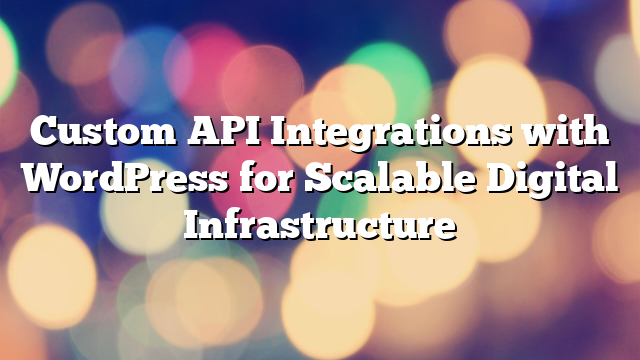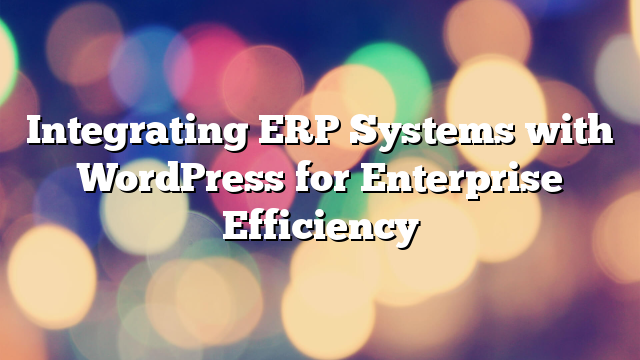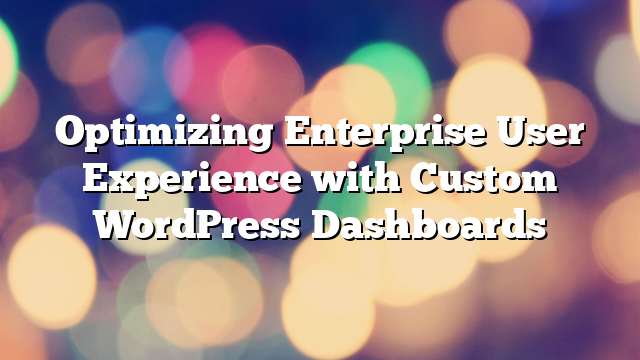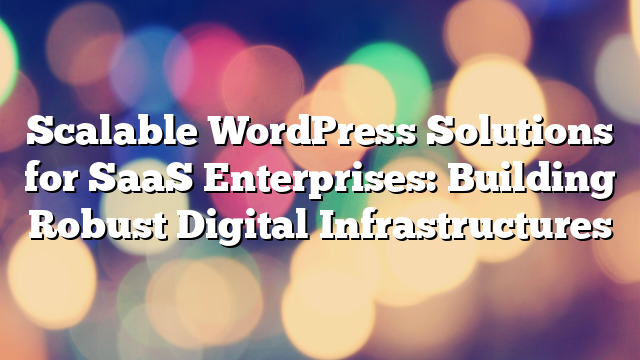Custom API Integrations with WordPress for Scalable Digital Infrastructure
22.05.2025

As enterprises evolve toward digital-first ecosystems, seamless data exchange between platforms becomes mission-critical. WordPress, when integrated with custom APIs, can serve as a powerful digital hub that connects CRMs, ERPs, mobile apps, marketing tools, and more. This article explores how custom API integrations elevate WordPress from a content platform to a scalable enterprise backbone.
The Role of APIs in Modern Enterprise Workflows
APIs (Application Programming Interfaces) act as bridges between systems, enabling real-time data sync and automation. For enterprises, this means reducing manual operations, minimizing errors, and accelerating workflows. When WordPress serves as the digital front-end or CMS, API integrations ensure it can communicate efficiently with backend and third-party platforms.
Popular Enterprise Use Cases for WordPress API Integrations
- CRM Synchronization: Sync leads, customer data, and user activity with tools like Salesforce, HubSpot, or Zoho CRM.
- eCommerce & Inventory Management: Connect with systems like SAP, NetSuite, or custom inventory databases for real-time product updates.
- Marketing Automation: Integrate with tools like Mailchimp, Marketo, or Google Ads for user segmentation and campaign automation.
- Mobile App Integration: Use REST or GraphQL APIs to feed mobile apps with structured content from WordPress.
At Vipe Studio, we specialize in building robust API bridges that enable WordPress to seamlessly power enterprise-grade platforms.
REST vs. GraphQL: Choosing the Right API Layer
WordPress comes with a built-in REST API, which is suitable for most applications. However, for complex enterprise needs, GraphQL may offer better performance by allowing clients to query exactly the data they need—nothing more, nothing less.
Choosing between REST and GraphQL depends on:
- Performance and payload requirements
- Security and authorization models
- Flexibility in querying nested content
Security and Authentication in API Integrations
Enterprise systems demand secure communication. Whether using OAuth 2.0, API keys, or JWT tokens, every API interaction must be authenticated and encrypted. Additionally, rate limiting, CORS policies, and user role permissions should be configured to ensure data privacy and integrity.
Scaling with Modular API Architecture
Scalability in API integrations comes from modularity. Break down integrations into microservices where possible. This allows faster development, parallel deployment, and greater system resilience. WordPress can act as the orchestrator that calls individual APIs based on specific tasks or triggers.
Real-Time vs. Scheduled API Calls
Depending on the use case, enterprises may need:
- Real-time sync: For live user actions, ecommerce transactions, or customer support chats.
- Scheduled sync: For nightly database updates, report generation, or content imports.
Vipe Studio implements both models depending on business logic, system load, and performance targets.
Why Enterprises Trust Custom WordPress Integrations
Custom API development enables businesses to maintain ownership over their processes. Unlike plug-and-play tools, custom-built integrations:
- Fit exact workflow requirements
- Eliminate third-party dependency risks
- Improve performance with cleaner, targeted data handling
Ready to Integrate Smarter?
If your business is planning digital transformation, robust API integration is a necessity—not a luxury. WordPress can be the central nervous system of your operations when engineered properly. Contact Vipe Studio for tailored API integration services that scale with your enterprise.



